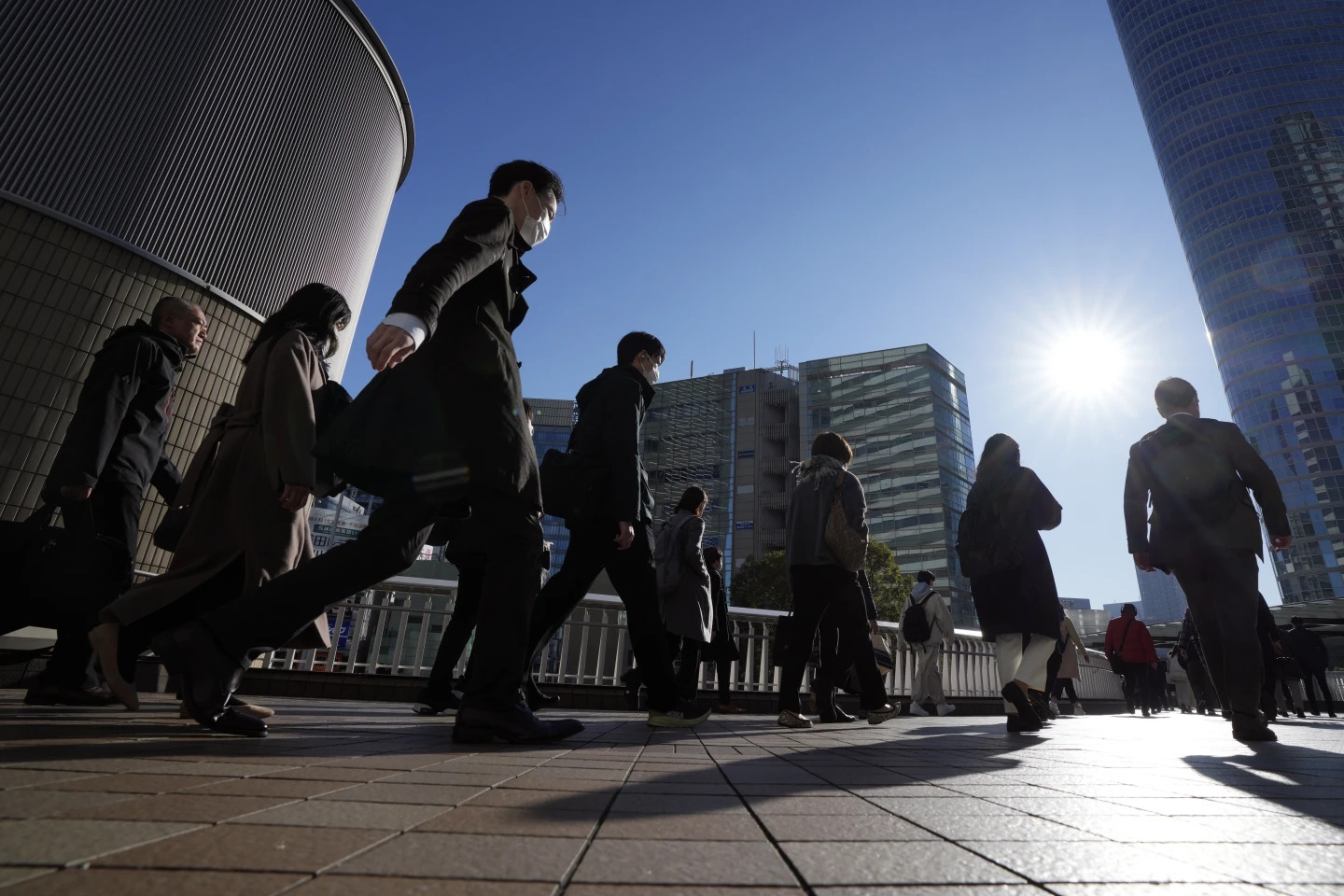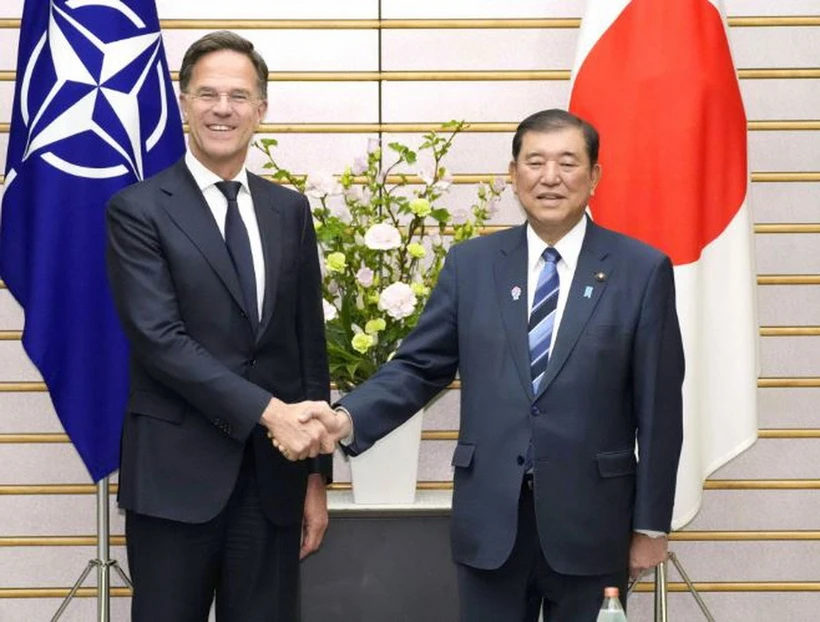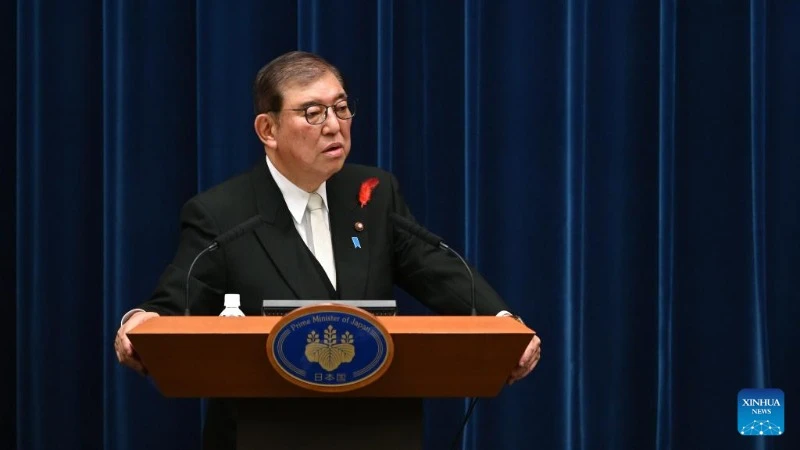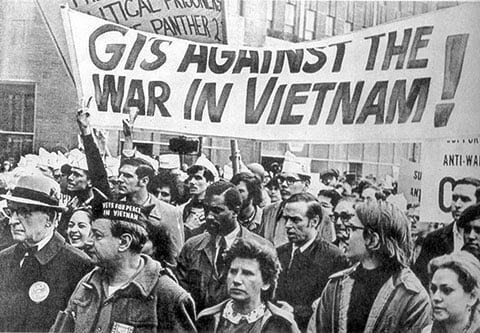Hoping to address the labor shortage, the Japanese government has launched a campaign called hatarakikata kaikaku, or "work style reform," which promotes shorter working hours, limits on overtime, paid annual leave and other flexible arrangements.
"By realizing a society where workers can choose a variety of work styles based on their circumstances, we aim to create a beneficial cycle of growth and distribution and help workers have better prospects for the future," the Japanese government's website states about the campaign.

Workers commute during rush hour at Shinagawa Station, Tokyo. Photo: AP
The Japanese government first expressed support for a shorter workweek in 2021 after lawmakers endorsed the idea. But the initiative has yet to be widely adopted. Only about 8% of companies in Japan allow employees to take more than three days off a week, while 7% allow employees to take one day off as a rule.
At Panasonic, 63,000 employees are eligible for the four-day work plan, but only 150 employees have opted to take it, according to Yohei Mori, who oversees the initiative at a Panasonic company.
Long hours are considered the norm. Although 85% of employers report giving employees two days off a week and there are legal restrictions on overtime, some Japanese people voluntarily work unpaid overtime to avoid being seen as irresponsible.
Some officials see that mindset shift as crucial to sustaining the workforce amid Japan’s plummeting birthrate. At the current rate, the working-age population is expected to fall 40 percent to 45 million by 2065, from the current 74 million, according to government data.
Meanwhile, advocates say the four-day workweek encourages people raising children, those caring for elderly relatives, retirees living on pensions and others looking for flexibility or extra income to continue working longer.
Ngoc Anh (according to AP)
Source: https://www.congluan.vn/nhat-ban-muon-thu-nghiem-tuan-lam-viec-4-ngay-post310142.html





![[Photo] Looking back at the impressive moments of the Vietnamese rescue team in Myanmar](https://vstatic.vietnam.vn/vietnam/resource/IMAGE/2025/4/11/5623ca902a934e19b604c718265249d0)

![[Photo] "Beauties" participate in the parade rehearsal at Bien Hoa airport](https://vstatic.vietnam.vn/vietnam/resource/IMAGE/2025/4/11/155502af3384431e918de0e2e585d13a)























![[Photo] Summary of parade practice in preparation for the April 30th celebration](https://vstatic.vietnam.vn/vietnam/resource/IMAGE/2025/4/11/78cfee0f2cc045b387ff1a4362b5950f)


























































Comment (0)